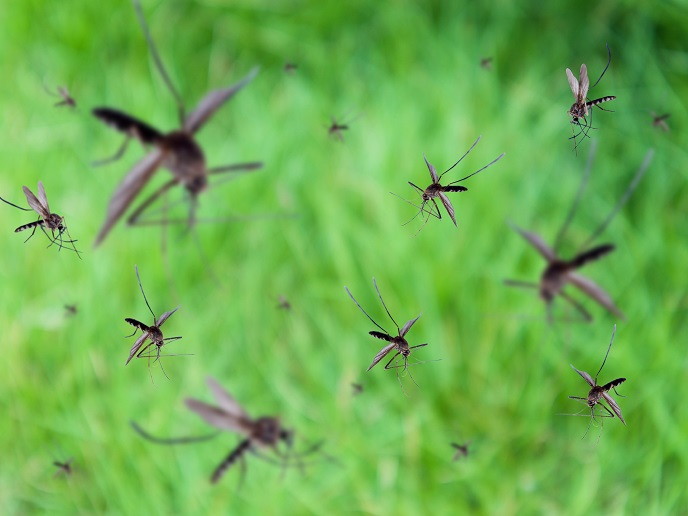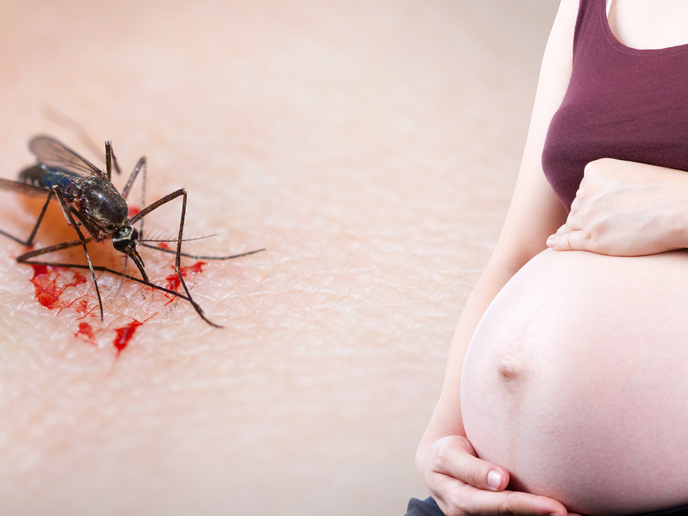Fighting malaria by disrupting the mating habits of mosquitoes
Malaria, a disease carried by mosquitoes, is responsible for the death of nearly half a million people every year. As mosquitoes become increasingly resistant to drugs and insecticides, researchers are looking for new ways to fight the disease. Chief among these are efforts to reduce mosquito populations. According to Ms Marta Andres, coordinator of the EU-funded NEURO-SWARM project, as hearing plays a crucial role in mosquito reproduction, it could be an important factor in reducing populations. “We know from previous studies that, in mosquitoes, the brain modulates the auditory function by releasing octopamine and serotonin,” Andres says. “By studying the role hearing plays in mosquito mating habits, we have opened the door to using acoustic lures and repellents as a means of restricting mating and thus controlling the spread of deadly diseases.” Andres’ research was undertaken with the support of the Marie Skłodowska-Curie programme.
Understanding how mosquitoes hear
Male malaria mosquitoes detect their mating partner by listening for their wing beat, a behaviour that occurs in large aerial swarms of thousands of mosquitoes. “As audition and swarming are essential for mosquito mating, we expected that blocking them would have a dramatic effect on mosquito reproduction,” explains Andres. To study how mosquitoes hear, Andres used a Laser-Doppler vibrometer(opens in new window), a highly sensitive tool that measures nanometre-range vibrations. Studying mosquito behaviour in a laboratory environment, she made several important discoveries. For example, she demonstrated that octopamine and serotonin impact both the mechanical and electrical responses of the mosquito’s ear to sound function, thus allowing the male mosquito to recognise the female mosquito’s wing beat. Furthermore, Andres discovered that this influence is strongest around dusk – the exact time when male and female mosquitos swarm. The project also developed protocols for characterising different aspects of mosquito hearing and swarming behaviour. This information could be vital to evaluating the fitness of genetically or biologically modified mosquitoes for mass-release in the field. “With the right genetic or biological modifications, we can cause a mosquito population to collapse or replace malaria-carrying mosquitoes with malaria-resistant mosquitoes,” says Andres.
A significant advance in disease control
By establishing a new line of research on the molecular mechanisms that underlie mosquito auditory perception, NEURO-SWARM has paved the way for exploiting hearing as a method for controlling mosquitoes. Currently, Andres is testing the effect that knocking out the octopamine receptors would have on the auditory and swarming behaviour of mosquitoes. “Through a collaboration with the Ifakara Health Institute(opens in new window) in Tanzania, we are exploring the public health implications of disrupting mosquito mating and how it can be used to reduce the spread of malaria,” says Andres. “This will help us evaluate the potential of blocking octopaminergic signalling as a way of disrupting mosquito acoustic communication and reproduction.” Thanks to a UKRI Future Leaders Scholarship(opens in new window), Andres will continue this line of research from her own lab at University College London(opens in new window). “Obtaining this fellowship would not have been possible without the opportunity provided by the Marie Skłodowska-Curie Individual Fellowship(opens in new window),” Andres says. “The end result of this work will be a significant advance in the field of mosquito research and disease control.”







